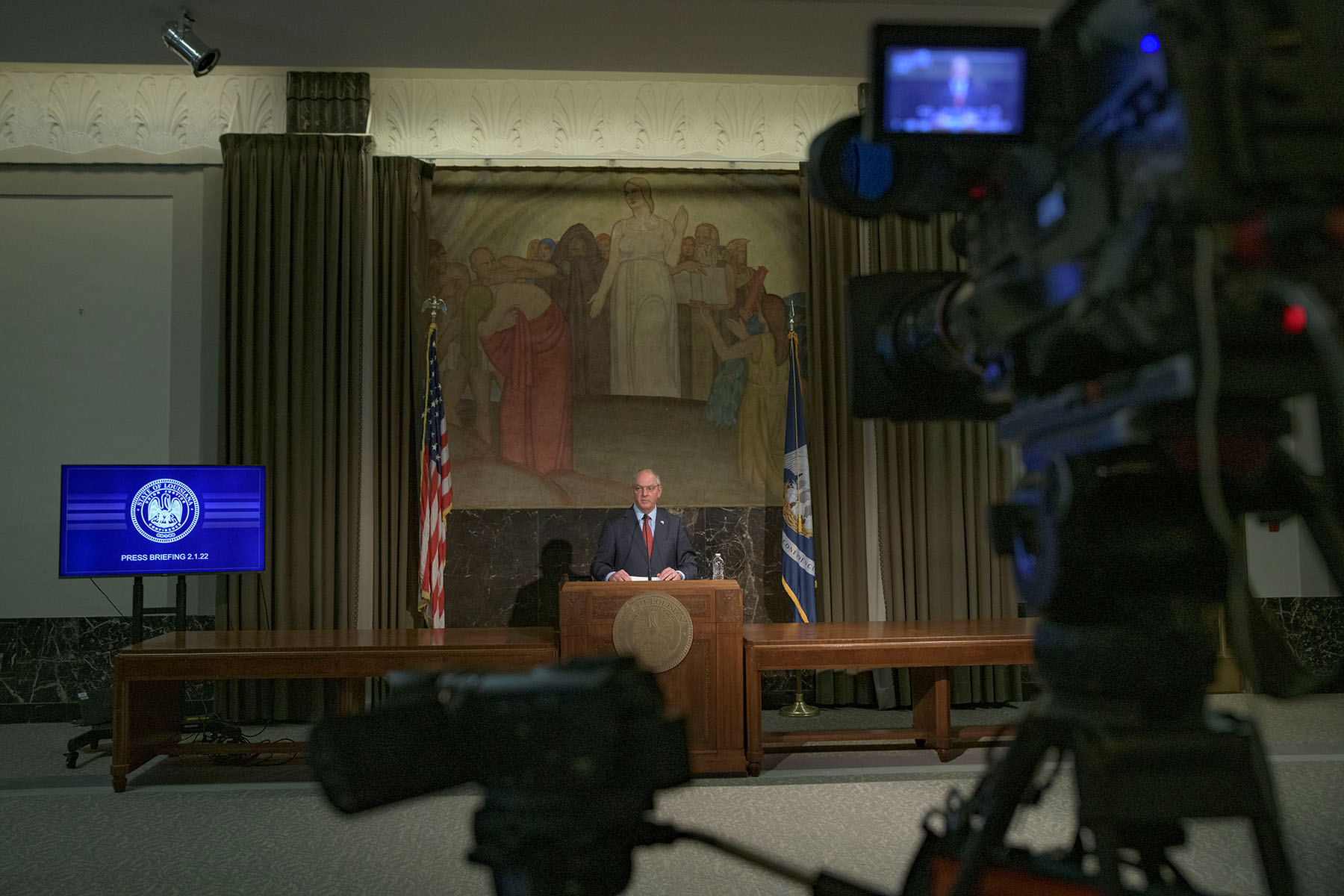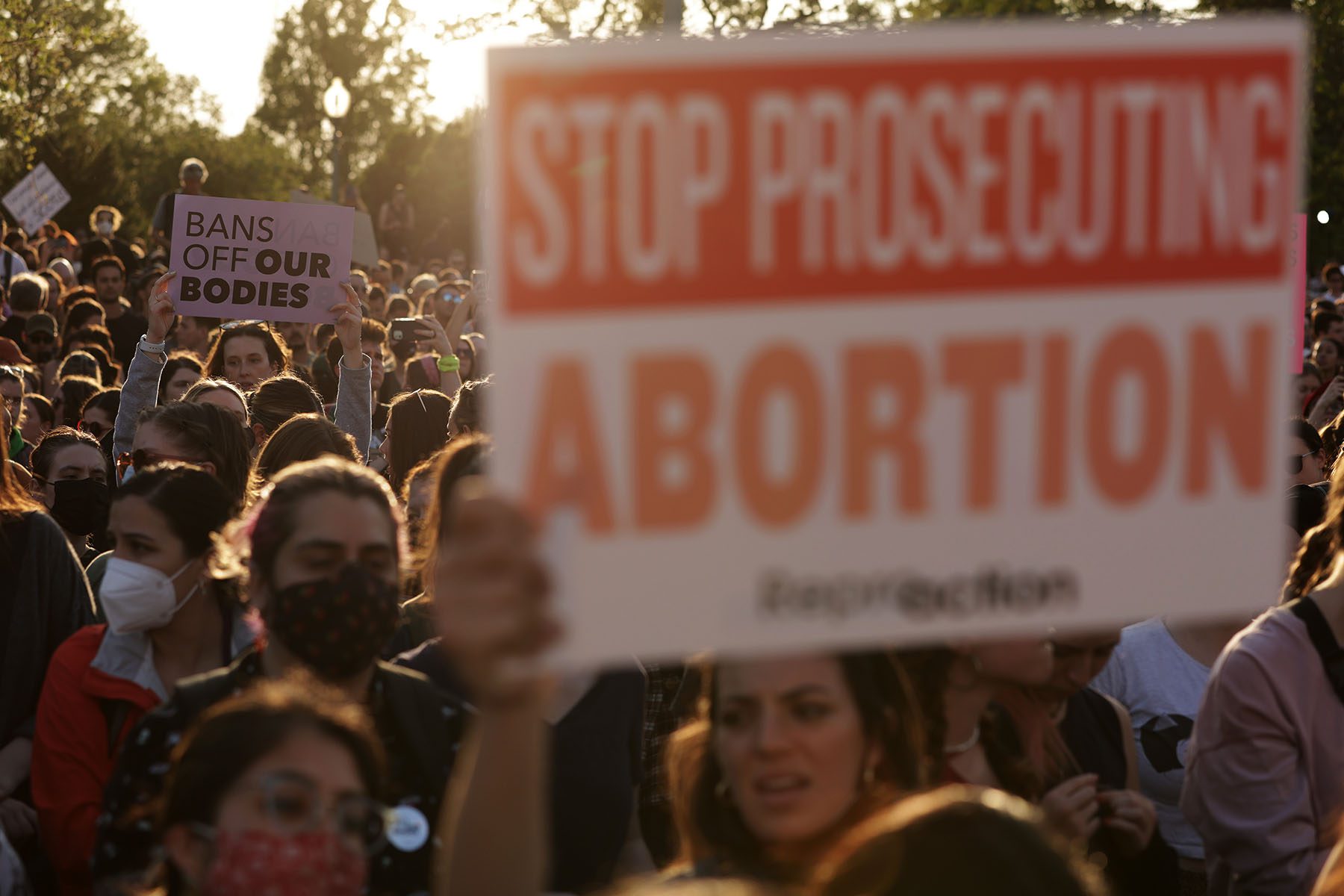The failure of a Louisiana bill that would have classified abortion as a homicide exposed a limit in how far anti-abortion organizations and lawmakers are willing to go to end the practice.
The legislation’s singular sponsor, Rep. Danny McCormick, removed the bill, titled the Abolition of Abortion in Louisiana Act of 2022, from consideration for a House vote after a proposed amendment would have stripped the most extreme sections of the legislation, making it more akin to a trigger ban already on the books.
It’s unclear what the future of the bill is. The amended version specifically says abortion seekers will not be criminalized by the law, but abortion providers could face 10 years in prison and up to a $100,000 fine for performing an abortion at any time during a pregnancy, starting at the moment of fertilization. Those penalites would increase if an abortion was performed after 15 weeks. The law also exempts instances where a pregnant person’s health is in jeopardy, and clarifies that birth control, including IUDs would remain legal.
The original legislation including the possible homicide charges for abortion seekers passed out of a House committee with a 7-2 vote last Wednesday. Though it failed to move past that, experts said even that step was a marked shift in the abortion debate.
The measure had received major backlash not just from abortion rights activists but also anti-abortion organizations and politiicans, including the Louisiana Family Forum and Louisiana Right to Life. Governor John Bel Edwards, a Democrat who is Catholic and has historically supported anti-abortion legislation, came out forcefully against the original bill, writing in a statement, “To suggest that a woman would be jailed for an abortion is simply absurd.”

“The most prominent national organizations don’t support anything that would criminalize the mother. They are focused in on criminalizing the abortion industry,” said Sarah Zagorski, communications director for Lousiana Right to Life. “Ultimately, this is inconsistent with what we as an organization have worked toward, by loving them both [the mother and the baby].”
Alisa Von Hagel, a professor at the University of Wisconsin who has studied the evolution of the anti-abortion movement, said that the “love them both” sentiment came about after the movement rebranded itself in the mid-1990s. Tactics from that time, like Operation Rescue, which focused on harassing women outside of abortion clinics, were condemned as too aggressive by the general public, according to the Washington Post.
Between 1977 and 1988 there were 110 cases of arson, firebombing and bombing directed at abortion clinics, according to a paper published in the National Library of Medicine. “They had a bunch of bad publicity with the killings and arsons,” Von Hagel, said. “So they literally came up with this, their new motto or theme, meaning that the movement was loving the fetus or wanting to protect the fetus, but also love the woman or protect the woman.”
That same messaging, which often portrays pregnant people as victims who are coerced into an abortion, has generally prevented these groups from wanting to prosecute people for making that decision, Von Hagel said. “It hasn’t been politically popular to charge the woman for homicide.”
Elizabeth Nash, an analyst with the Guttmacher Institute said it would be a big change in how these groups view people who get abortions. But the question could become more relevant in a post Roe world. “If abortion is banned and people seek out medication abortion or self manage an abortion on their own, does that person become more of an actor and do abortion opponents want to then criminalize those actions?”
She added: “I feel that is something they are wrestling with. But right now, at least in Louisiana, they are saying that’s a bridge too far.”
On a national level, Senate Republicans have been primed to refute the idea that they’ll go after patients for getting abortions. As first reported by Axios, after the draft opinion Supreme Court leak showing Roe v. Wade would be overturned, a campaign arm of the Republican Party circulated talking points advising Republicans to refute “Democrat lies” that they’ll “throw doctors and women in jail.”
Still, proponents in state legislatures are attempting to lay the framework for just that. Versions of the original bill’s language in Louisiana that would charge a pregnant person with homicide have been introduced in 12 other states around the country. Louisiana was the first state to vote it out of committee. These bills are the brainchild of Bradley Pierce, president of the Texas-based Foundation to Abolish Abortion, who has been working with lawmakers on the ground to pass these more extreme versions of anti-abortion legislation.
While this attempt to criminalize abortion seekers in Louisiana failed, there has been an uptick in recent years in prosecuting pregnant people under a variety of laws after a pregnancy loss, according to the American Bar Association, which passed a resolution in February 2021 condemning the practice.
“This disturbing trend — and the prospect of increased criminalization under a Supreme Court majority hostile to abortion rights — calls for a direct response from the legal profession,” the resolution states. “This is particularly important at a time when communities of color and their allies throughout the U.S. — and the world — are speaking out to oppose law enforcement violence and racially disproportionate criminalization.”
Legislation on fetal homicide, which are currently on the books in 38 states, were initially crafted to protect pregnant people, and were created to ramp up the charges against those who committed a violent act like the murder of a pregnant person, said Sara Ainsworth, senior legal and policy director of If, When, How, a reproductive rights organization.
“These laws were never intended to be used this way,” she said. “By prosecuting people in these circumstances, prosecutors are misusing the criminal legal system and that harms the law in multiple ways and attacks constitutional rights.”







